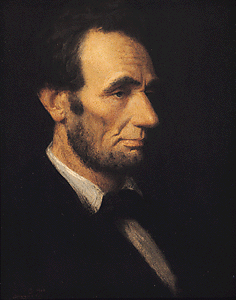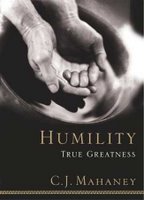Always
- Reflect on the wonder of the Cross
- Acknowledge your need for God
- Express gratitude to God
- Practice the Spiritual disciplines
- Use your commute time to memorize Scripture
- Cast your cares upon God
"He was looking forward to the city that has foundations, whose designer and builder is God."
When Al Gore's film on global warming, "An Inconvenient Truth," arrived in theaters on Wednesday, it had the usual endorsements from Hollywood stars, left-leaning politicians and radical professors. But it also had a blurb from a more surprising figure: Richard Cizik, the vice president of government affairs for the National Association of Evangelicals.
Mr. Cizik has been hobnobbing with an unlikely crowd lately. One day he is in a Newsweek photo spread, clutching a Bible in front of the nation's Capitol. The next he is posing barefoot in Vanity Fair, looking suspiciously as if he is walking on water. The following week he is chatting up Berkeley professors and joining political powwows with Bono.
With Mr. Cizik's help, the National Association of Evangelicals (NAE)--representing 52 member denominations and about 30 million evangelicals--has become one of the most talked-about lobbying groups in the nation. But what are evangelicals lobbying for these days?
Take the Evangelical Climate Initiative, endorsed by Mr. Cizik, which has "put global warming on the evangelical agenda," according to the NAE's Washington Insight newsletter. The initiative pushes the government to reduce carbon-dioxide emissions. It has been supported by Christian leaders from across the spectrum, including Rick Warren, the author of "The Purpose Driven Life"; Peter Borgdorff, the executive director of the conservative Christian Reformed Church; and Jim Wallis, the editor of the liberal Sojourners magazine.
While alliances like these may raise the eyebrows of a few purists, many evangelical leaders are too busy plotting policy to be bothered--and the environment is just the beginning. "We have a realist strategy," Mr. Cizik told me. "You go to the gays to pass the AIDS bill. You go to the ACLU to pass the prison-rights bill. You work with your erstwhile opponents to achieve the common good."
Read the rest of it HERE.
I wish I believed Mr. Cizik didn't mean "erstwhile". Wrong-headed initiatives like this show why THESE GUYS and THIS DOCUMENT are so needed.

 I've been working my way through Doris Kearns Goodwin's massive history of Abraham Lincoln and his Cabinet, Team of Rivals, since Christmas. I just finished it today.
I've been working my way through Doris Kearns Goodwin's massive history of Abraham Lincoln and his Cabinet, Team of Rivals, since Christmas. I just finished it today.


Jesus shows us by example in John 17 that unity takes prayer. We simply can’t expect to enjoy unity if we aren’t praying for it! If Jesus had to pray for it, then surely we must do the same. Friend, when was the last time you prayed for the unity of your church? I’d challenge you to make that a daily prayer request. Pray that your church might be unified, and pray that God would reveal to you how you can better promote unity among your local church by how you think, speak, feel, and react. We can all grow in this area. All of us struggle with feeling bitter towards others sometimes, or reacting with sharp words, or being overly critical, or complaining, or being too prideful to admit we’re wrong. We’re all sinners in need of grace, mercy, and forgiveness – both from God and from each other.
But we are not our own. We do not just represent ourselves, or our own opinions and desires. Jesus has purchased us at the cost of His own blood. We are His. He owns us. He has created us for His glory, and He has bought us with His blood so that we might represent Him well in the world. Let’s resolve together to glorify God in our local churches by speaking, feeling, thinking, and acting in ways that promote the unity of the church; and let’s pray that as we do, God would be pleased to make our unity an effective tool for the conversion of unbelievers.
By Paul Alexander, IX Marks Ministries
I do not ask on behalf of these alone, but for those also who believe in me through their word; that they may all be one; even as You, Father, are in Me and I in You, that they also may be in us, so that the world may believe that You sent me. The glory which You have given Me I have given to them, that they may be one, just as We are one; I in them and You in me, that they may be perfected in unity, so that the world may know that You sent Me, and loved them, even as you have loved Me… (John 17:20-23).
Jesus has prayed for the unity of His church – and thankfully, He is still praying! One of His earnest prayers and desires for any local church is that it be unified. Of course, we would all agree that we want to be one. But why does Jesus want us to be united? What is Jesus’ motive in seeking the unity of the local church? Is it just for our benefit? According to John 17, Jesus prays for our unity because the unity of our local church is designed to reflect the unity that God enjoys among the different persons in the Trinity. He wants us, a diverse body of believers, to be one, even as He, a diverse Tri-unity, is one. Jesus is the head of the church, and He intends us to display and enjoy a kind of unity that says true and beautiful things about the unity of our three-in-one God. This is in large part how Jesus wants our local churches to represent God – and we can’t avoid representing Him. If we’re part of a church, then we are part of Christ’s body. Our church is either saying true things about the unity of the Godhead, or we are misrepresenting God as somehow divided within Himself.
We all contribute to either a spirit of unity or of division. Our behavior, our words, our priorities, our attitudes, our emotional responses, even our thoughts and motives, all contribute to our church’s representation of God’s unity. What a convicting thought! Every time I react in anger or sinful frustration, every time I respond with sarcasm in my words or harbor bitterness in my heart, every time I gossip, every time I am motivated by selfishness or pride, I’m not just affecting my own testimony. I’m affecting the unity and testimony of the church, which directly affects the testimony of God Himself. The same is true in marriage. Marriage is a picture of the relationship between Christ and His church (Eph 5:22-29). My love for my wife is designed to reflect the nourishing, cherishing, self-sacrificing love of Christ for His church. So whether I want to admit it or not, all of my behavior, thoughts, attitudes, affections, words, motives, and reactions towards my wife are saying something about Christ’s relationship with the church. I’m either saying something true, or something false. And each time I sin against my wife in any one of those ways, I’ve said something false about how Christ loves and treats His precious Bride. When we are united as a local church, we are saying true things about the relationships among the Father, Son, and Spirit. When we think, feel, act, and react in ways that promote oneness, we say true things about the oneness of God.
And according to Jesus, the unity of our churches is also the best evangelistic tool we have. He wants us to be "perfected [or mature] in unity, so that the world may know that You sent Me, and loved them, even as you have loved me." God has designed unity in the local church to function like a magnet to attract both believers and unbelievers. When we are united as a local church, our relationships with one another begin to speak volumes to a watching world. The love and selflessness and humility and patience that characterize united relationships begin to tell the world that God sent Jesus, and that God loves us, His Bride. Conversely, when we allow petty divisions to prevail among us, we become evangelistically ineffective because the corporate testimony of our church is saying false things about God. The unity of the local church is God’s evangelism program. If we want to see the Holy Spirit use our local churches to produce converts, then we must all work hard and work together to promote and preserve unity in our church.